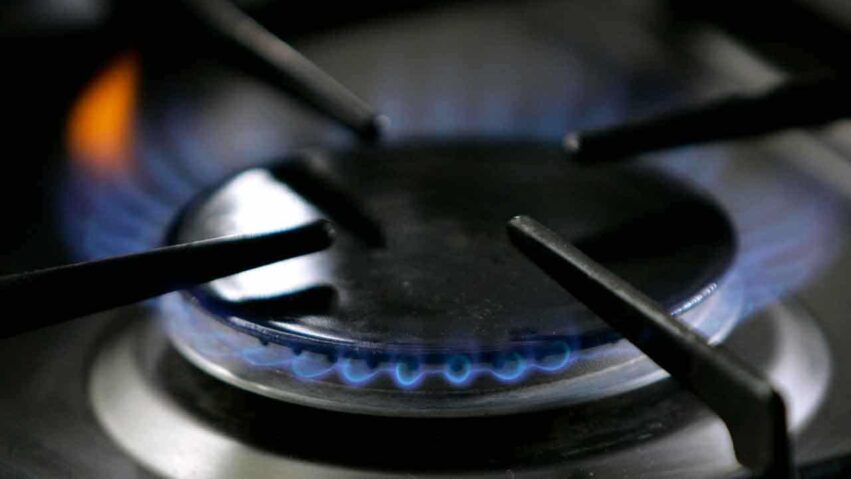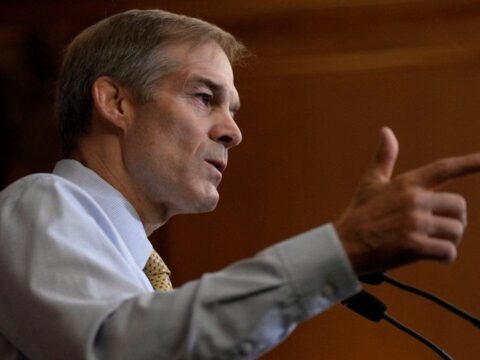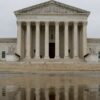A federal appeals court rejected a petition Tuesday to rehear a case related to a natural gas ban proposed by the City of Berkeley, California, which the panel ruled was illegal last year.The U.S. Court of Appeals for the Ninth Circuit ultimately denied Berkeley’s petition for rehearing en banc — a motion that received support from the Biden administration, Democratic-led states and environmentalists — after it failed to receive majority support from the court’s non-recused active judges. Berkeley filed the motion last year after the court in April that a Berkeley law banning natural gas pipes in new construction violated federal statute.Following the panel’s filing Tuesday, the Air-Conditioning, Heating, and Refrigeration Institute (AHRI), which had argued Berkeley’s law was illegal, applauded the court for ensuring consumer choice.”Naturally, AHRI and particularly our member companies that manufacture products and equipment that use natural gas, are very pleased that the full court denied Berkeley’s appeal, thereby allowing the residents of Berkeley, and likely elsewhere, to continue to have choices with respect to energy sources for home and water heating,” AHRI President and CEO Stephen Yurek said in a statement.BIDEN ADMIN UNVEILS STRING OF ECO REGULATIONS IN LATEST APPLIANCE CRACKDOWN TARGETING FRIDGES, FREEZERS Democratic-led cities nationwide have passed laws prohibiting new buildings from having natural gas hookups as part of their broad climate agenda. (AP Photo/Thomas Kienzle, File)”We look forward to continuing to work with states and localities to formulate solutions that help them meet their energy conservation and emission reduction goals without unduly impacting consumer health, safety, comfort, and productivity,” Yurek added.In July 2019, Berkeley’s city council passed the ban which was set to go into effect in January 2020, making the city the first in the nation to approve such a measure. Berkeley Councilwoman Kate Harrison, who authored the legislation, said at the time that it was part of the city’s effort to take “more drastic action” on climate change and curb greenhouse gas emissions.BIDEN ADMIN LAUNCHED AN AGGRESSIVE CAMPAIGN TARGETING HOME APPLIANCES WITH ECO REGULATIONS IN 2023However, months after it was approved, the California Restaurant Association (CRA) filed a federal lawsuit challenging the city’s ability to pass a law banning new natural gas hookups. After a lower court ruled in favor of Berkeley in July 2021, the CRA filed an appeal, leading to the Ninth Circuit ruling in April.The Ninth Circuit concluded that Berkeley’s law violated the federal Energy Policy and Conservation Act (EPCA) of 1975, which prevents local regulations from impacting the energy use of natural gas appliances. The campus of U.C. Berkeley is photographed on June 22, 2023, in Berkeley, California. (Jason Armond / Los Angeles Times via Getty Images)”Instead of directly banning those appliances in new buildings, Berkeley took a more circuitous route to the same result,” Judge Patrick Bumatay wrote in the opinion of the court. “It enacted a building code that prohibits natural gas piping into those buildings, rendering the gas appliances useless.””In sum, Berkeley can’t bypass preemption by banning natural gas piping within buildings rather than banning natural gas products themselves,” he continued in the ruling. “EPCA thus preempts the Ordinance’s effect on covered products.”BIDEN ADMIN AIMS TO PUSH TOWNS, CITIES TO ADOPT GREEN ENERGY BUILDING CODES: ‘VERY SUSPICIOUS’CRA President and CEO Jot Condie said at the time that Berkeley’s attempt to ban natural gas hookups was “an overreaching measure beyond the scope of any city.”After Berkeley then filed its petition for rehearing, the Department of Justice (DOJ) in June filed an amicus brief in support of the city’s gas hookup ban. Attorney General Merrick Garland is pictured delivering remarks at the Department of Justice. (Chip Somodevilla/Getty Images)”The panel opinion in this case upended those settled expectations. It held that a particular municipal ordinance addressing a health and safety concern identified by local elected leaders is preempted by the Act — even though the ordinance does not regulate the energy efficiency, energy use, or water use of a covered product,” the DOJ stated in the brief.”The ordinance prohibits the installation of certain energy infrastructure in new construction,” it continued. “It thereby affects, indirectly, the circumstances in which some products may be used in some locations. The panel did not explain why this ordinance’s indirect effects warranted preemption or why other health and safety ordinances would not.”CLICK HERE TO GET THE FOX NEWS APPThe case has drawn the attention of industry groups that supported CRA — including the American Gas Association and AHRI — and environmental groups and other jurisdictions across the country that supported Berkeley’s ordinance, including the National League of Cities, California, Maryland, New York, Oregon, Washington, D.C., and New York City. Thomas Catenacci is a politics writer for Fox News Digital.
Breaking News
2024-10-27 A man who abused up to 3,500 girls online has been sentenced for crimes including manslaughter
2024-10-27 Rear Admiral Claims Government COVERED UP Alien Contact. We’ve Talked with ALIENS????
2024-10-27 BREAKING: UN Sec Council Passes Gaza Aid, US Sits Out; Trump Audio EXPOSES Pressure On MI Officials
2024-10-27 Missing Juvenile Aamina Turner from the 12th District – Blotter
2024-10-27 Missing Endangered Person Ivelisse Lugo from the 2nd District – Blotter
Static News
500k views later The FLORIDA...
phillynews215 2021-04-27 50 Comments on Body Cam: Officer Fatal Shooting Man with a Sword – Pomona Police March 30- 2020
#officerinvolvedshooting #policeshooting #Pomona Policedepartment Please...
phillynews215 2021-04-27 50 Comments on Bodycam Shows Deputies Shooting Armed Suspect in Greenville, South Carolina
** (Disclaimer: This video content...
Video brought to you by...
Rafael Nieves 2024-10-27 0 Comment on A man who abused up to 3,500 girls online has been sentenced for crimes including manslaughter
A "relentless and cruel" online...
Rafael Nieves 2024-10-27 38 Comments on Rear Admiral Claims Government COVERED UP Alien Contact. We’ve Talked with ALIENS????
Robby Soave and Briahna Joy...
Rafael Nieves 2024-10-27 0 Comment on BREAKING: UN Sec Council Passes Gaza Aid, US Sits Out; Trump Audio EXPOSES Pressure On MI Officials
The Hill’s Kevin Cirilli recaps...
Rafael Nieves 2024-10-27 0 Comment on Missing Juvenile Aamina Turner from the 12th District – Blotter
The Philadelphia Police Department is...
Rafael Nieves 2024-10-27 0 Comment on Missing Endangered Person Ivelisse Lugo from the 2nd District – Blotter
The Philadelphia Police Department is...
phillynews215 2024-05-10 20 Comments on Rebuilding and Modding a Salvage Supercharged Mercedes AMG! Gained 40 Wheel HP in Under 40 Minutes!
Thanks to Copart for Sponsoring...
phillynews215 2024-01-17 Comments Off on Supreme Court declines Indiana school’s appeal on transgender bathroom order
Read this article for free!...
Thank you to Center Mass...
WE'RE SNOWED IN AND BROKE...
phillynews215 2023-10-23 39 Comments on Couple Arrested for Attempted Vehicle Purchase with Fake ID’s
#CrimeCamNow On October 18, 2022,...
Proudly powered by ANGELHOUSE 2009 - 2024 | ALL YOUTUBE VIDEOS IS A REGISTERED TRADEMARK OF GOOGLE INC. | THE YOUTUBE CHANNELS AND BLOG FEEDS IS MANAGED BY THE RIGHTFUL OWNERS/CREATORS HOSTING BY PHILLYFINESTSERVERSTATS INC. ALL RIGHTS RESERVED




















